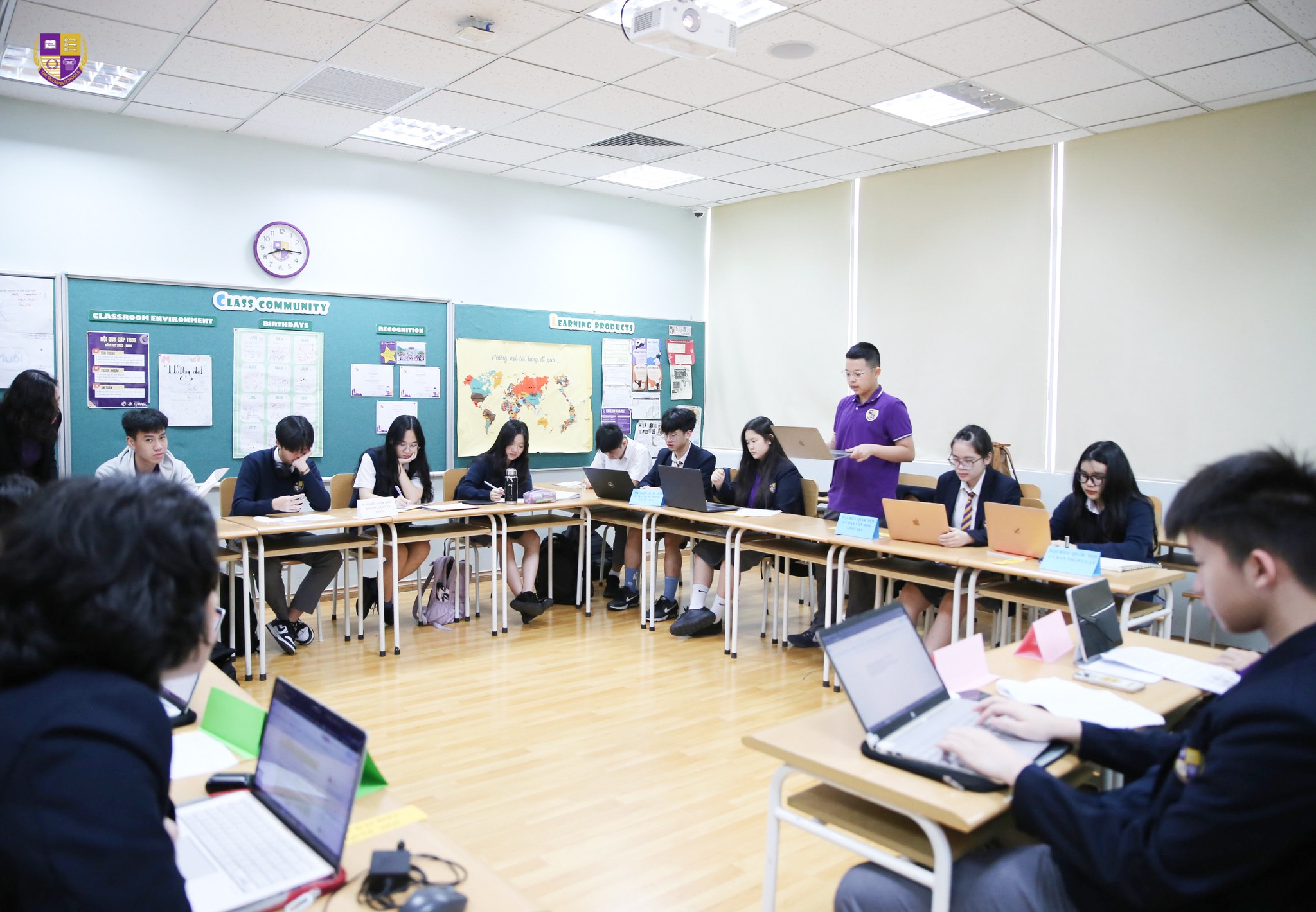
"National assembly" discussion on "hot" topics: grade 10 olympians show interest in learning economics and law
10 January, 2024
- "May I ask the Minister of Public Security: Why is there still a situation of granting operating licenses to mini-apartment buildings when they do not meet fire safety requirements?"
- "Please tell me, Minister of Construction: How does the Department of Land Administration and the Department of Construction at the local level manage to allow the construction of unauthorized extra floors and 'disguise' ownership of mini-apartment buildings? What solutions does the Ministry have to ensure the quality and safety of residents living in mini-apartment buildings?"
- "Currently, Housing Law does not include the concept of mini-apartment buildings; it only recognizes individual houses... Under the guise of 'individual houses,' current mini-apartment buildings are not subject to the pre-inspection and post-inspection procedures of the Department of Construction, as with other commercial apartment buildings. We propose that the National Assembly amend and supplement the 2014 Housing Law to have specific regulations for mini-apartment buildings, enabling authorities to compare and address the existing issues of this type of housing."
....................................................
This is part of the content covered in a class discussion about the structure, functions, and responsibilities of Vietnam's political system and state apparatus in the Economics and Law subject for 10th-grade students at Olympia School.
Following the model of the National Assembly session, students will play the roles of delegates, government leaders, and parliamentarians to discuss, question, and find solutions to various current social issues such as licensing and management of mini-apartment buildings, managing harmful information on social media, etc. Prior to this session, the Olympians had three weeks to acquire foundational knowledge about Vietnam's political system, research the two topics that would be discussed during the session, and prepare for Q&A rounds.

"We have to read a lot of laws, legal documents, and information in books and newspapers, work in groups and individually... to gather the necessary information for the simulated National Assembly session. During the session, there are many new questions that we need to look up on the spot. Although there is more work to be done, we are delighted to experience being delegates participating in the National Assembly session. This approach makes the theories in textbooks about Vietnam's political system and state apparatus more vivid and understandable," shared Pham Anh Triet, a 10th-grade student.
"When putting myself in the role of a National Assembly delegate, I find this job very challenging because it requires not only sharp thinking but also deep and broad knowledge about the issue I am addressing. Besides understanding Vietnam's political system, learning through the model of the National Assembly session and discussing real issues have helped me gain more knowledge about society and the legal framework related to this issue," said Olympian Duong Tuan Minh (10th-grade student).
Starting from the difficulties faced by students in grasping the vast and academically demanding knowledge about the structure, characteristics, principles of organization, and operation of the state apparatus and political system of the Socialist Republic of Vietnam, teachers of the Economics and Law Department at Olympia School have created a truly exciting learning model. By helping students understand the structure and importance of the state apparatus, the teachers also instill a sense of responsibility in them. After each lesson, the students ponder and make efforts to find solutions to the big question: "As citizens, what can I do to support and monitor the state apparatus?" or "If I were a government management agency, what would I do to address the current pressing issues?".



















